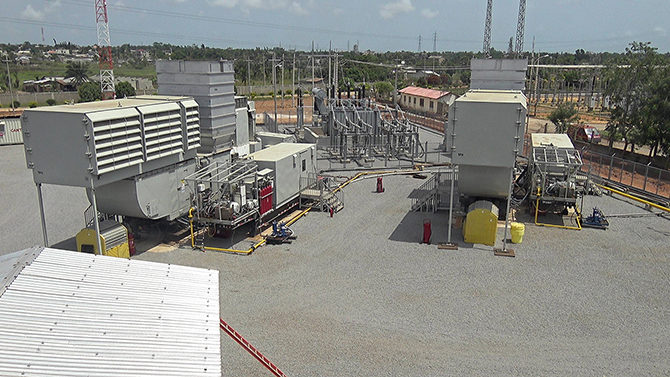Challenges
- Aging, inoperable generation generating capacity
- Reliance on power imports from neighboring countries
- Available but unreliable natural gas supply
Background
For years, Benin and its 11 million people have relied on power imports from neighboring West African nations. Despite having 136MW of installed generating capacity, many of its aging plants were inoperable and much of the plant equipment had been removed for other uses. In 2016, Benin elected a new president who pledged a sufficient electricity supply for Benin’s population and reduced reliance on power imports. To help attain those goals, the Ministry of Energy, Water and Mines in Benin solicited bids for generating capacity that could operate on multiple fuels.
Solution
In November 2016, the Ministry of Energy, Water and Mines contracted APR Energy to provide 50MW of power generation using two fuel-flexible TM2500 aeroderivative turbines. Although they initially would be powered by diesel, the turbines offered the capability to switch seamlessly to natural gas if reliable supplies of the lower-cost, cleaner-burning fuel became available. In March 2017, the turbines were connected to two electrical grids serving the West African Power Pool – one from Ghana, the other from Nigeria. While each grid operated at 132kV, the highly unstable Nigerian system required APR Energy to modify its turbine software and engineer other solutions to compensate for wild voltage fluctuations that could reduce power output from 50MW to 15MW.
Outcome
The installation of 50MW of reliable generating capacity has reduced Benin’s reliance on electricity imports and helps support economic growth and social stability with domestically produced power. The Benin economy also has benefitted from job creation, as most of the employees who operate and maintain the power have been hired and trained from the local workforce. With the 50MW in Benin, APR Energy has installed more than 1,000MW of generating capacity in 11 African countries since 2008.

